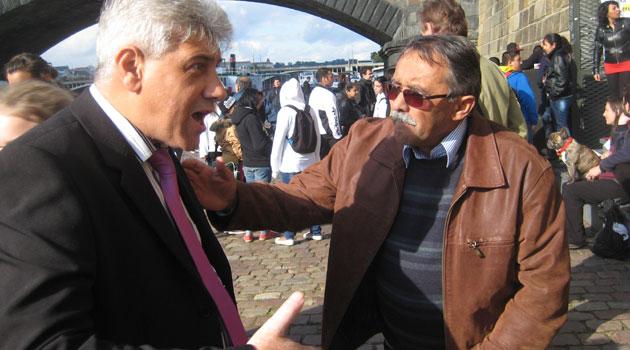Romani activist not chosen for Czech Institute for the Study of Totalitarian Regimes

The board of the Institute for the Study of Totalitarian Regimes (Ústav pro studium totalitních režimů – ÚSTR) has seated its new members: Archivist Emílie Benešová, political scientist Lukáš Jelínek, sociologist and municipal politician Michal Uhl (Green Party), and the chair of the Confederation of Political Prisoners (Konfederace politických vězňů), Naděžda Kavalírová. Čeněk Růžička was one of more than 30 candidates considered, but was not ultimately appointed.
The Czech Senate, during its second session since the election, chose four new members for the board. The board has seven members elected to five-year terms. The Senate chose three members proposed by civic associations and one suggested by the Czech President. Six of the seven seats were being filled through the vote.
The President nominated Kavalírová, who was the only nominee chosen during the first round of voting. She won 42 of the 73 votes cast.
During the second round of voting, Benešová received 46 out of 70 possible votes, Jelínek 45 votes, and Uhl received 40. The trio were chosen from 32 nominations made by civic associations that were accepted by the Senate voting commission.
Deník referendum.cz reports that while Kavalírová has defended her previous place on the board, some of its previous members will no longer continue their work there. The five-year terms have ended for another member of the Confederation of Political Prisoners, Čestmír Čejka, for the ODS party nominee Patrik Benda, and for the Dean of the Philosophical Faculty of Charles University in Prague, Michal Stehlík.
Candidates in the second round of voting included the chair of the civic association "Yes for Europe", Monika MacDonagh-Pajerová, Karel Strachota of People in Need, and historian Marek Tomaštík of the Tomáš Bat’a University in Zlín. Other candidates were historian Jan Mervart, political scientist Lukáš Valeš, and the former director of the ÚSTR, Zdeněk Hazdra. Čeněk Růžička, chair of the Committee for the Redress of the Roma Holocaust (Výbor pro odškodnění romského holocaust), was also nominated, but the senators did not choose him.
"For the time being, the Romani genocide has not been researched much, and I would like to bring it to the center of attention. I would also have access to information there that is not yet generally known," Růžička told news server Romea.cz when asked why he was seeking a seat on the board.
Růžička has been involved in researching the Holocaust and seeking compensation for its victims for decades. He officially began his work immediately after the changes in November 1989.
The ÚSTR board is its highest body, with hiring and firing powers to change the Institute’s director. It also has the power of the purse, as it approves the background materials on which budgets are drafted, as well as organizational and research powers to determine the aims of the Institute’s work and approve its methods. During the last time period the board’s work was paralyzed by personal disputes among various members of the board, as well as between the board and the management of the Institute.